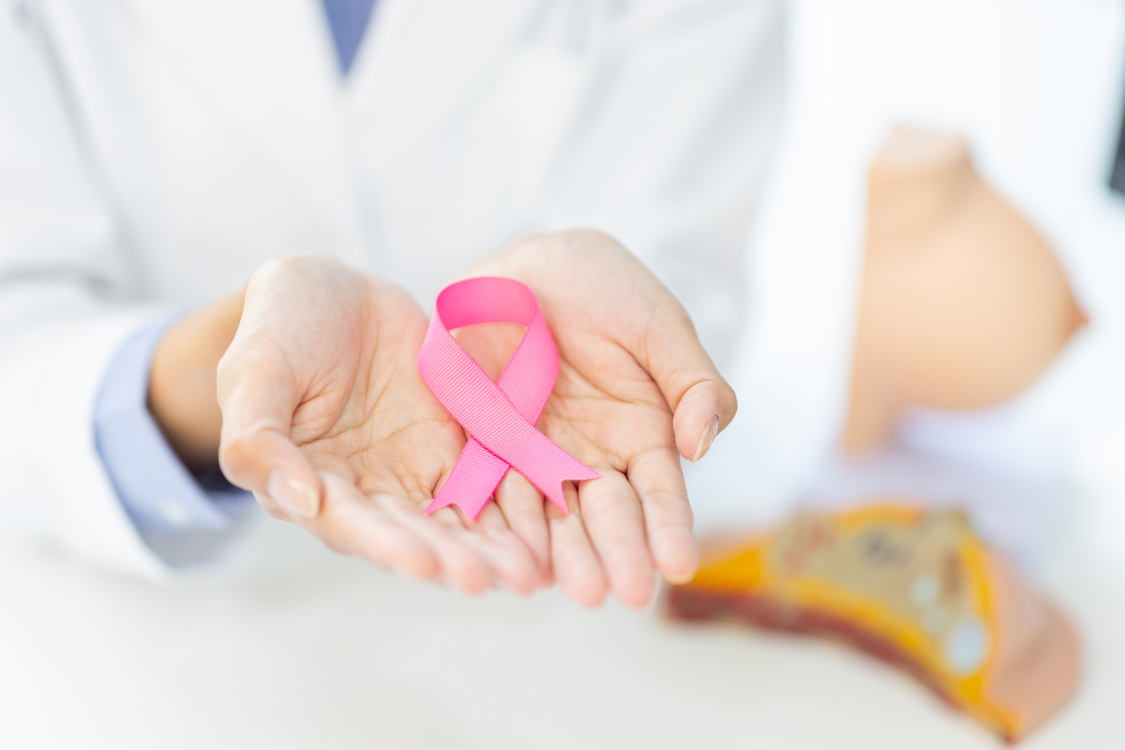READ THE LATEST
Ms.Medicine Blog
The Ms.Medicine blog is your trusted source for comprehensive women's health information. We’ll cover a wide range of topics including general health, wellness, lifestyle, nutrition, and women's specific health concerns. With evidence-based articles and practical advice, we aim to empower women to make informed decisions about their health and well-being at every stage of life.
Prepping for Your First Mammogram: What Every Woman Should Know
Your first mammogram doesn’t have to be intimidating. This guide walks you through what to expect, how to prepare, and how mammograms support long-term breast health.
Menopausal Hormone Therapy in 2025: Why Dose, Formulation, and Delivery Matter
In November 2025, the FDA removed the boxed warning from all menopausal hormone therapy products. While many experts welcome the change, removing the warning from systemic therapies has generated debate. Learn what this shift means for women.
Beyond the Mammogram: When Ultrasound or MRI Makes Sense
Mammograms are the foundation of breast cancer screening, but they aren’t the whole story. For some women, additional imaging like ultrasound or breast MRI can offer clarity and catch cancers that mammograms may miss—especially if you have dense breasts or elevated risk. This guide explains when supplemental imaging is recommended, what the tests feel like, how they’re used, and how to ask the right insurance questions so you feel empowered, not overwhelmed.
Benign Breast Changes vs Red Flags: When To Watch and When To Call
You’re in the shower and notice a lump. Is it something to worry about? Most breast changes are benign, but it’s hard to know which ones can wait and which need a call. In this guide, we break down common, harmless breast changes and the red flags that deserve medical attention. From dense tissue and hormonal shifts to cysts and fibroadenomas, you’ll learn how to interpret what you feel—and when to schedule a visit for peace of mind.
Everyday Prevention: Small Habits That Lower Breast Cancer Risk Over Time
Prevention doesn’t have to mean perfection. If you’ve ever wondered what daily habits can lower your risk of breast cancer, this guide is for you. From movement and nutrition to stress management and alcohol reduction, these small, science-based choices are powerful tools when practiced consistently. With practical tips and a judgment-free tone, this post helps you build sustainable routines that support long-term breast health—no extreme overhauls required.
Understanding Breast Cancer Risk: What Every Woman Should Know
If you’ve ever wondered when to start mammograms, whether dense breast tissue changes your plan, or if a breast cancer risk calculator is worth using—you’re not alone. Every woman has some level of breast cancer risk, but understanding your personal risk is the key to taking confident, informed action. This guide breaks down the factors that shape risk, the tools that help assess it, and how Ms.Medicine creates personalized screening plans that work for your body—not just the average one.
Cancer Prevention: Small Steps for Big Impact
Take control of your health with proven cancer prevention strategies that fit into your daily life. From simple dietary changes to smart screening choices, discover how small, consistent actions can significantly reduce your cancer risk and enhance your overall well-being. It's not about massive lifestyle overhauls—it's about smart, sustainable steps that protect your future.
Understanding Breast Density: What You Need to Know About Your Mammogram
Navigating the world of mammograms can often feel overwhelming, especially when you're faced with terms like "breast density" and "dense breast tissue." Understanding what these terms mean is crucial for making informed decisions about your health. As of September 2024, mammography facilities are required to provide you with a breast density notification, letting you know if your breast tissue is dense or not. But what exactly does having dense breast tissue imply, and how does it affect your breast cancer risk? Join us as we unravel these questions and empower you with knowledge, so you can confidently approach your mammogram, armed with understanding and optimism.
Understanding Breast Cancer Risk: What Olivia Munn’s Experience Reveals
While sharing her journey with breast cancer, Olivia Munn has sparked a crucial conversation about the significance of breast cancer risk assessment. Understanding why Olivia Munn's breast cancer reveal emphasizes the need for risk assessment is vital, as this evaluation can provide essential insights into one's individual risk factors and empower informed decision-making regarding preventive measures. Exploring what a breast cancer risk assessment can and can't reveal is key to demystifying this process, guiding women over 40 towards proactive healthcare. In this piece, we delve into the importance of this tool, highlighting the specialized support Ms.Medicine providers offer in conducting risk assessments and providing personalized guidance. Dr. Lisa Larkin's personal experience as a breast cancer survivor further underscores the importance and value of this assessment, demonstrating the necessity of proactive healthcare in promoting women's well-being.
Breast Cancer: Early Detection, Screening & Intervention
Breast cancer is the second most common cancer in women. According to the American Cancer Society data, one in eight women and 1 in 833 men will develop breast cancer. There are many variables that come into play in the development of breast cancer. Most of us are motivated to do anything to prevent or diminish the risk of developing it.
Understanding Breast Density
Nearly half of all women have dense breasts – something that increases a woman’s risk of developing breast cancer and makes it more difficult to detect cancer in screenings. Despite how widespread dense breasts are, there still isn’t the clarity and knowledge women need around this issue.















